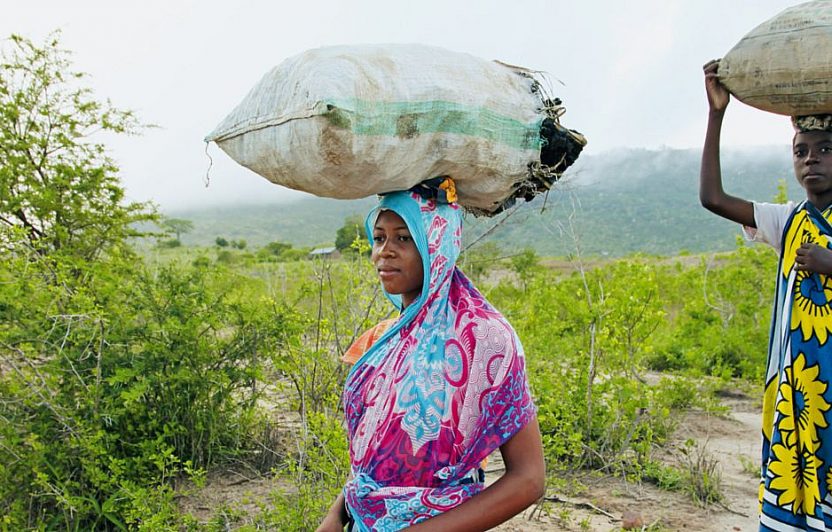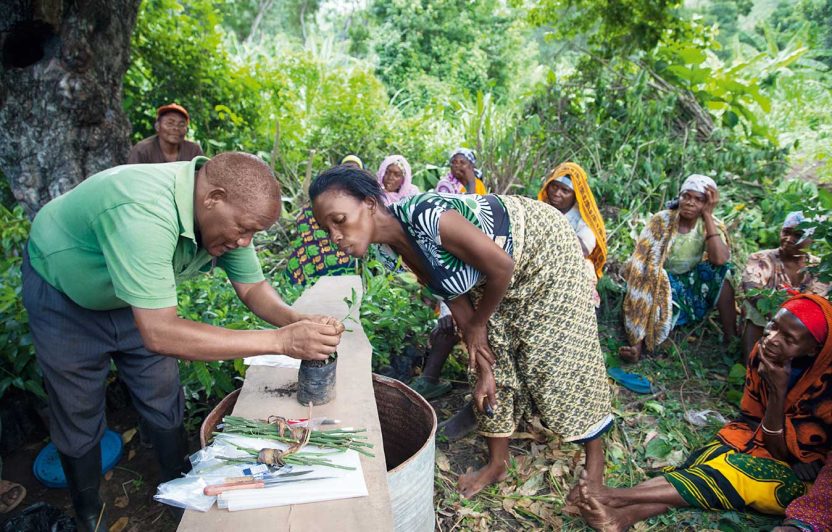B-ACT reflects how companies, projects and initiatives align with the High Level Panel of Experts on Food Security and Nutrition (HLPE)’s 13 principles of agroecology. For example, it can show whether an initiative increases resource efficiency or rather strengthens the link between consumers and producers. Doing so reveals potential for optimization.
Each principle is classified under one of three overarching themes: improving resource efficiency, strengthening resilience or securing social equity/responsibility.
The 13 principles considered are:
1. Recycling: Use local, renewable resources and close biomass and nutrient cycles.
2. Input reduction: Reduce or eliminate dependence on purchased inputs (such as fertilisers or pesticides) and increase self-sufficiency.
3. Soil health: Secure or enhance soil health and functioning for improved plant growth, particularly by managing organic matter and enhancing soil biological activity.
4. Animal health: Ensure animal health and welfare.
5. Biodiversity: Maintain and enhance the biodiversity of agroecosystems at the field, farm and landscape scales.
6. Synergy: Enhance positive ecological interaction and synergy among the elements of agroecosystems (animals, crops, trees, soil and water).
7. Economic diversification: Diversify farm incomes by increasing smallholder farmers’ financial independence and value-added opportunities, while enabling them to respond to consumer demand.
8. Co-creation of knowledge: Promote co-creation and sharing of knowledge. This includes scientific innovation, especially through farmer-to-farmer exchange.
9. Social values and diets: Build food systems based on the culture, identity, tradition and social and gender equity of local communities that provide healthy, diversified, seasonally and culturally appropriate diets.
10. Fairness: Support dignified livelihoods for all actors engaged in food systems, especially small-scale producers, based on fair trade, fair employment and fair laws (e.g. for intellectual property rights).
11. Connectivity: Ensure proximity and confidence between producers and consumers through promotion of fair and short distribution networks and by re-embedding food systems into local economies.
12. Land and natural resource governance: Strengthen institutional arrangements to improve, including the recognition and support of family farmers and smallholders as sustainable managers of natural resources.
13. Participation: Encourage greater participation of food producers and consumers in decision-making to support decentralized and local adaptive management of the food system.
Example of a B-ACT assessment

Biovision together with partners developed questions for all principles that were incorporated into B-ACT. The more questions that can be answered positively for an initiative or a business model, the more it contributes to the corresponding principle. Not all questions are applicable to all initiatives. For example, animal husbandry is not relevant for a vegetable farm. This was taken into account by categorizing questions as “not applicable”.
More information on B-ACT can be found on the project website.






